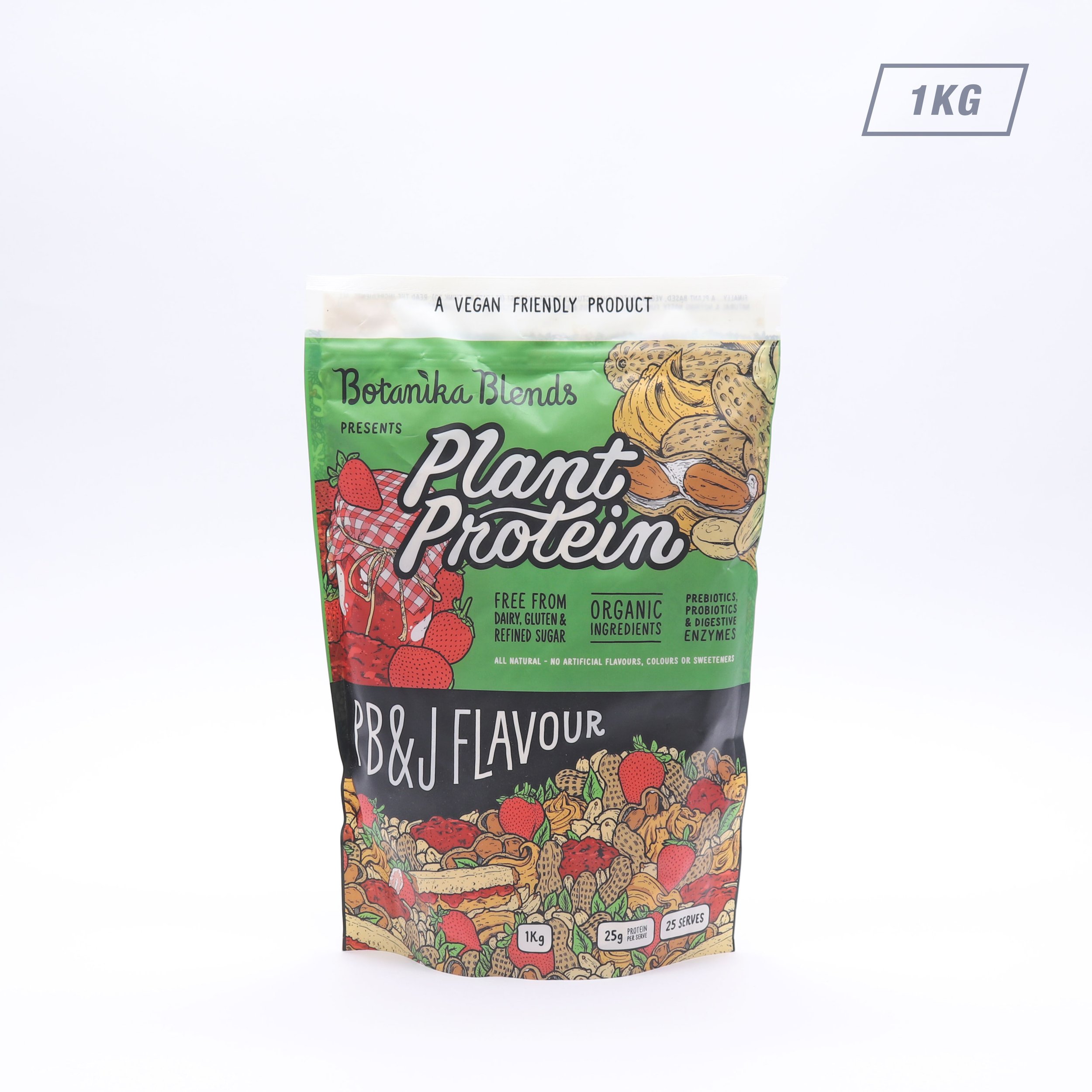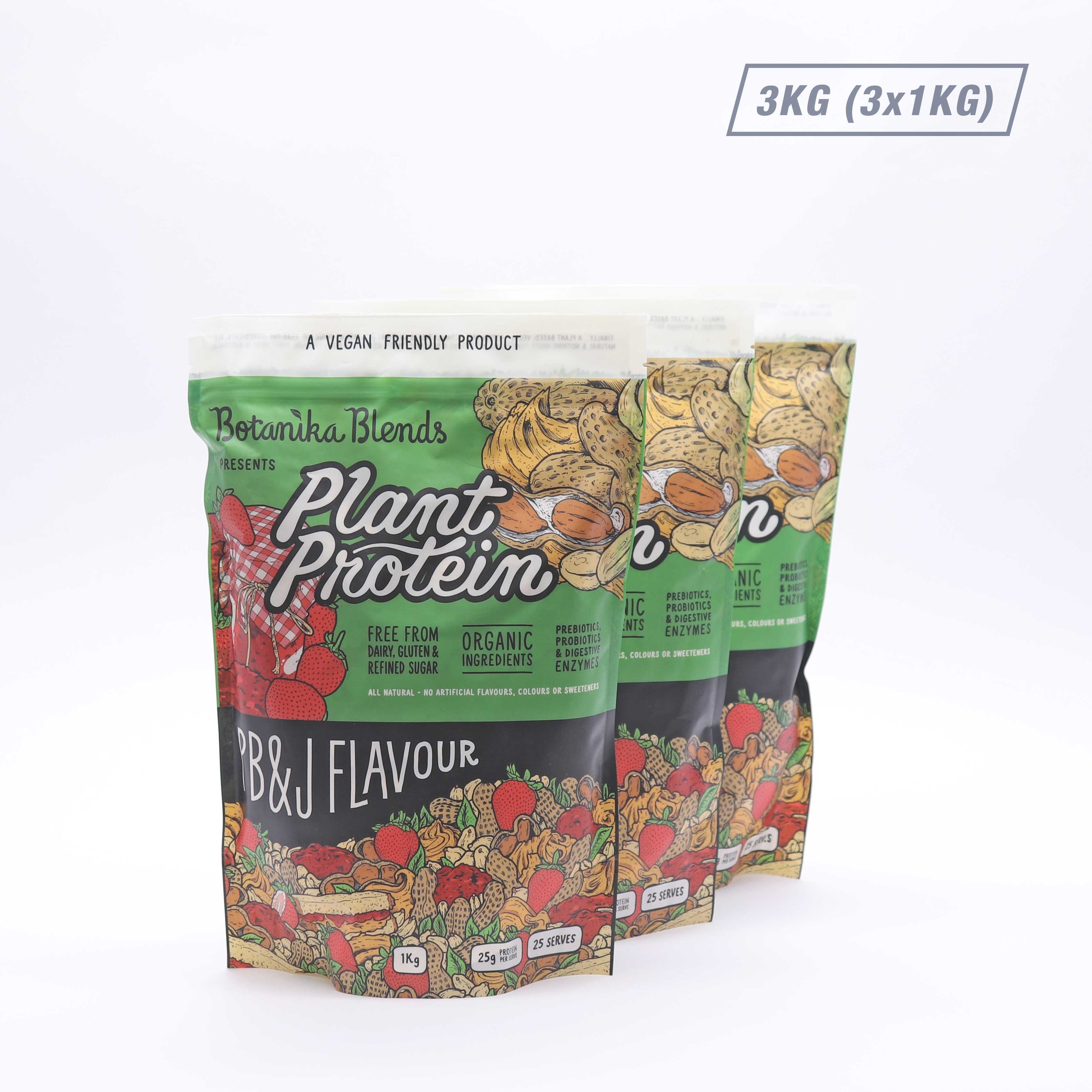From Gains to Grumbles: Why do Protein Shakes send you Running to the Bathroom?
Your muscles are pumped, glistening with sweat, and you're savouring that triumphant gulp of your hard-earned protein shake. Life's great...until, out of nowhere, your stomach decides it's time for a much less glamorous, although surprisingly effective, cardio session – sprinting to the bathroom!
Well, here's the good news, you're not the only one! Protein shakes have an annoying knack for making you poop a lot. So, why exactly does protein powder have this effect, and how can you avoid becoming a permanent resident of your bathroom? Fasten your seatbelts (or perhaps your toilet seat) – we're embarking on an informative journey to help you navigate these unique side effects!
Jump to: Why Do Protein Shakes Make You Poop a Lot?
Jump to: Runs and Remedies: How to Stop Frequent Bathroom Trips After Protein Shakes.
Jump to: Poop-Proof Protein: Our Favourite Protein Powder that Won’t Give You the Runs.
Why Do Protein Shakes Make You Poop a Lot?
1. Excess Protein Intake.
Like any nutrient, it is possible to consume too much protein, which can overwhelm your digestive system and lead to gastrointestinal discomfort, including diarrhea.
Your Recommended Daily Intake (RDI) for protein varies by age, country, and gender, however as a general rule, the RDI to keep malnutrition at bay is around 56 grams for males and 46 grams for females. Now, protein shakes typically contain a hearty 25-30 grams of protein per serving, and if you're doubling down on shakes in addition to consuming a high-protein diet, you can quickly overwhelm your system with protein!
Going above your protein RDI isn't necessarily dangerous. In fact, some athletes and bodybuilders need that extra protein hit. But remember, consistently overindulging in protein can lead to various digestive and health side effects.
2. The Laxative Effect.
Certain ingredients found in protein powders may have a laxative effect on some individuals. Avoid protein powders that include the following ingredients.
Sugar Alcohols/ Low-Calorie Sweeteners: Sugar alcohols such as sorbitol, erythritol mannitol, and xylitol which are used as low-calorie sweeteners in protein powders. If consumed in excess, these can cause gas, bloating and diarrhea.
Fillers & Binders: Protein powders frequently incorporate fillers to enhance their texture, increase volume, and aid in absorption. Among these fillers, maltodextrin is a widely used and cost-effective choice. However, it's essential to be aware that while maltodextrin serves these purposes well, it may cause digestive discomfort for certain individuals.
Hidden Allergens: Always check the label for potential allergens, especially if you have known food allergies. Protein powders may contain traces of common allergens like nuts, gluten, or dairy.
High Caffeine / Fat-Loss Stimulants: Some weight-loss specific protein powders may contain caffeine or other stimulants to help induce weight loss, these stimulants can have a laxative effect.
Added Sugars: Check for added sugars, especially high-fructose corn syrup or excessive amounts of natural sugars. Opt for protein powders which are formulated with minimal added sugar or those sweetened with healthier alternatives.
Artificial Colours, Flavours, Sweeteners & Preservatives: Protein powders often contain artificial flavours, sweeteners, colours, and preservatives, serving various purposes like enhancing taste and appearance while extending shelf life. Some individuals are sensitive to these artificial additives and may experience digestive discomfort, including increased bowel movements or diarrhea. While these additives are generally considered safe, individual reactions can vary significantly.
FUN FACT!
Did you know 68% of people globally are intolerant to Lactose? While it’s not necessarily a full-blown allergy, but hey, it might just explain why your protein shakes make you sprint to the bathroom!
3. Lactose & Dairy Sensitivity – The Likely Culprit!
When it comes to protein powders, most of us are no strangers to the likes of Whey Protein, available in both Whey Protein Isolate (WPI) and Whey Protein Concentrate (WPC). Whey is a fantastic source of protein, but it's important to understand that these whey powders contain traces of lactose. Lactose, the natural sugar found in milk and dairy products, can lead to diarrhea and digestive discomfort, especially for those with lactose intolerance.
What's quite surprising is that lactose intolerance is incredibly common, affecting approximately 68% of people worldwide. While it may not be a full-blown allergy, most people are sensitive to lactose without realising it, which can put unwanted stress on our digestive systems.
Interestingly, whey protein has a deep connection to the dairy world, particularly cheese production. It's a natural byproduct of the cheese-making process, arising when whey is separated from the curds. If dairy doesn’t align with your body, then there’s a high chance whey protein powder could upset your stomach.
If you experience lactose sensitivity, it's crucial to opt for protein powders that are completely lactose-free. These alternatives provide the benefits of protein supplementation without the digestive issues that can accompany lactose. The good news is there are plenty of dairy-free options that can offer gains without the grumbles!
4. Hydration & It’s Impact:
Hydration is the cornerstone of a well-functioning digestive system, ensuring the efficient breakdown of food and optimal nutrient absorption. This becomes especially crucial when you're indulging in protein shakes which are jam-packed with nutrients. By maintaining proper hydration, you not only enhance the ease of protein absorption but also ensure its safe and effective digestion within your body.
Most protein shakes are highly concentrated, potentially challenging your digestive system. Adding ample water to your shake or selecting a protein powder that blends well with liquids creates a more easily digestible beverage, reducing the risk of digestive discomfort.
Staying well-hydrated not only enhances your protein shake experience but also minimises the likelihood of digestive issues like diarrhea or constipation. So, remember to sip on some H2O alongside or following your protein powder for a smoother and more comfortable protein journey.
Runs and Remedies: How to Stop Frequent Bathroom Trips After Protein Shakes.
1. Sip, don’t chug:
Now, you wouldn't devour an entire steak in just a minute, would you? Well, your protein shake deserves the same treatment - sip it slowly, like you're savouring a fine glass of wine. Slowing down your protein shake consumption lets your body process it with ease, reducing the risk of any digestive issues. Also consider pairing your shake with a glass of water. This will help to dilute the shake and also enhance the absorption of protein, making it easier on your gut. So, remember, take it slow and hydrate regularly!
2. Exercise Induced Gastrointestinal Syndrome (EIGS).
Exercise-Induced Gastrointestinal Syndrome, often abbreviated as EIGS, encompasses a range of digestive symptoms experienced during or after vigorous physical activity. These symptoms can include cramps, bloating, nausea, and diarrhea. The onset and severity of EIGS are influenced by the type and intensity of exercise, timing of meals/ protein shakes and dietary choices.
Downing your protein shake right before or after an intense sweat session may occasionally trigger EIGS. The combination of exercise-induced stress on your digestive system and a protein shake that your body needs to process might lead to gastrointestinal distress.
Instead, try to space out your protein shake and workout, opt for gentler, non-dairy protein powders, and don't forget to keep yourself well-hydrated!
3. Gradual Increase in Protein Intake:
When adding protein powder to your diet, a strategic approach is your stomachs best ally. It's wise to commence with a gradual intake. Begin by incorporating a small amount of protein powder into your shakes, and over the span of a few weeks, progressively increase this quantity to the recommended dose. It's crucial not to dive in headfirst and down three scoops in your very first shake. This abrupt approach can overwhelm your digestive system, given the concentrated nature of protein powders. Opting for a gradual and progressive intake allows your body to adapt and condition itself to this new dietary supplement, promoting not only healthy digestion but also a more comfortable transition.
4. Gut-Friendly Supplements:
Your digestive system plays a pivotal role in how your body processes nutrients, and when it comes to enjoying protein powder shakes, a happy gut is your best friend. Try these gut-friendly supplements to help enhance your digestive experience:
Probiotics: These living microorganisms promote a healthy gut microbiome and efficient protein digestion. Consider probiotic-rich foods or supplements to bolster your gut health.
Apple Cider Vinegar: Diluted apple cider vinegar before your protein shake may stimulate stomach acid production, aiding protein breakdown.
Digestive Fibre Supplements: Adding powdered digestive fibre supplements to your protein shake boosts its fibre content and will help to aid your digestive system in processing protein more efficiently. These supplements often contain ingredients like psyllium husk, inulin, guar gum, rice bran, and more. They typically have a neutral taste, making it easy to incorporate them into your shake without altering the flavour.
Proper Hydration: Adequate water intake is essential for digestive efficiency, so ensure you stay well-hydrated throughout the day.
PSST!!...
Consider a protein powder which is Dairy-Free and Allergen Friendly to help stop the Post-Protein Shake Poop!
5. Choosing the Right Protein Powder: A Digestive Game-Changer.
When it comes to your protein powder selection, making the right choice can be a significant digestive game-changer. The type of protein powder you opt for can greatly impact your digestion, especially if you've been experiencing frequent bathroom visits. Here are some tips to guide you in selecting a protein powder that's kind to your gut:
Allergen-Friendly Options: If you suspect that whey or dairy-based proteins are the culprits behind your digestive discomfort, it might be time to explore allergen-friendly alternatives. Vegan protein powders, for instance, are not only plant-based but also easy to digest. They can offer just as much protein content as their dairy counterparts without the digestive distress!
Check the Ingredients: Read the ingredient list carefully. Look for protein powders with minimal additives and artificial ingredients, as these can sometimes trigger digestive issues in sensitive individuals. Opt for clean and simple formulas that focus on the primary protein source.
Focus on Digestibility: Some protein powders are specifically formulated for easy digestibility. Look for options labeled as "easy to digest" or "gentle on the stomach." These protein powders are designed to minimise the chances of digestive discomfort, making them an excellent choice for those looking to reduce bathroom visits.
Organic Protein Powders: Organic protein powders often undergo more careful production processes, ensuring better ingredient quality. They won’t be jam-packed with artificial fillers, flavours, and preservatives. While they may come at a slightly higher cost, the investment in organic protein can be well worth it for a more digestive-friendly shake.
You might be thinking, "who has time to sift through every protein brand and figure out the perfect protein powder?!" Don't worry; we've done the heavy lifting and uncovered the ultimate protein powder to silence those pesky protein pains! Read on to find out more.
Poop-Proof Protein: Our Favourite Protein Powder that Won’t Give You the Runs.
Here at Pro Scoop, we've embarked on a protein-packed journey, putting numerous brands through the ultimate taste and tummy test. After countless scoops and shakes, we've crowned our champion and we now proudly stock Botanika Blends Plant-Based protein powders. These delicious protein powders will ensure you spend more time pumping iron in the gym rather than running to the bathroom. Why Botanika Blends? Let us break it down.
Dairy-Free, Lactose-Free, and Gluten-Free protein powders
Formulated using Organic ingredients
No nasty artificial sweeteners, flavours or colours
Refined sugar free
100% plant-based ingredients
Delicious flavours, including nut-free options
Includes naturally occurring prebiotics, probiotics and digestive enzymes to aid digestion
Because who said your protein shake couldn't be a joyride for your taste buds and your tummy? Try it once, and you'll wonder why you ever settled for less! Poop-proof your protein game with our delicious range of Botanika Blends protein powders.
When to Seek Help: Unusual Symptoms and Your Health.
Savouring your protein shake should be a delightful experience, however sometimes our bodies might throw unexpected curveballs. If you find yourself in the not-so-fun situation of persistent bloating, extreme discomfort, or an upset stomach that lingers longer than the average bathroom break, it might be time to pause and take note. While minor discomfort can be normal, anything beyond the symptoms or remedies we described in this article might be a cue to hit the pause button. Remember, your body is your best ally – if it's signalling distress, it's worth listening. When in doubt, always consult with a health professional. After all, a happy gut is a healthy gut, and your well-being always takes the priority seat!





